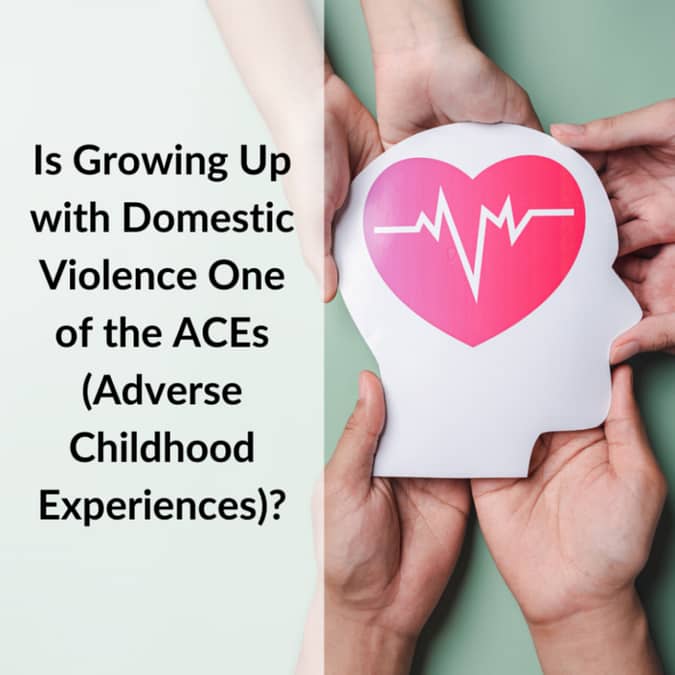Researchers have identified ten Adverse Childhood Experiences, known as ACEs. These are linked to childhood trauma, chronic illness, mental health problems, and other challenges that can impact a child’s entire life. Some of these ACEs include physical abuse, sexual abuse, and experiencing parents getting a divorce.
Is domestic violence considered one of the Adverse Childhood Experiences (ACEs)?
Unlike with physical child abuse, domestic violence does not involve the direct physical harm of a child. Domestic violence, also called intimate partner violence, occurs when an adult physically harms their intimate partner (such as their spouse, girlfriend, or boyfriend). When a child sees or hears domestic violence occur, they experience Childhood Domestic Violence.
Childhood Domestic Violence (CDV) is one of the ten ACEs
Unfortunately, very few people have heard the term “Childhood Domestic Violence.” In a recent survey, we found that fewer than 10% of people are aware that this ACE exists.
Why is Childhood Domestic Violence (CDV) considered an Adverse Childhood Experience?
You may wonder why CDV is considered one of the ACEs if a child doesn’t experience direct physical harm. Unfortunately, experiencing CDV can lead to many of the same challenges that are associated with physical child abuse:
- Children often experience fear, anxiety, anger, and even aggression as a result
- They can also experience depression, sadness, and withdrawn behavior
- CDV can even cause physical issues. These can include headaches, stomach cramps, increased risk of allergies and asthma, and increased risk of contracting the flu
- When a child experiences CDV, they’re more likely to believe violence is normal and acceptable in relationships
How is CDV connected to the other ACEs?
Sadly, children who grow up with CDV are also likely to experience other ACEs as well. According to researcher Jeff Edleson, more than half of those who experience one ACE also experience five or more other ACEs.
For example, CDV is frequently linked to physical child abuse. One study finds that seven in ten men who are violent toward their partners are also violent toward their children. Another suggests that in homes with CDV, children are 15 times more likely to be abused by a parent.
What can you do if you know a child living with CDV?
If you know a child impacted by CDV, here are five ways you can help them build their resilience:
- Be a positive influence—Researchers find that children who have positive adult influences are better able to overcome traumatic experiences like CDV.
- Encourage development of talents and skills – Studies show that when children are able to focus on developing talents and skills, their resilience to trauma is strengthened.
- Be willing to listen – When children have the opportunity to talk about and label their feelings, they are better able to heal from Adverse Childhood Experiences (ACEs).
- Practice mindfulness exercises with them – Psychologists find that practicing mindfulness activities can help “reduce past-oriented traumatic memories and future-oriented anticipatory fears.”
- Take our online Change A Life program – This 40-minute program teaches you how to intervene when you know a child living with CDV.

